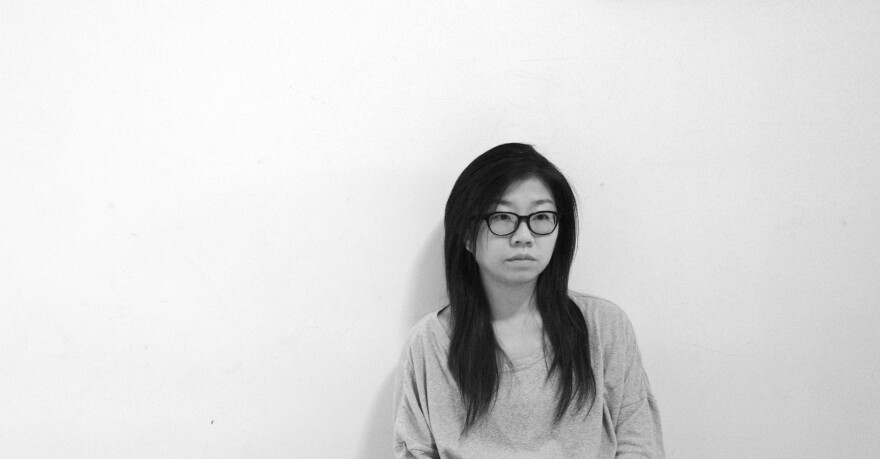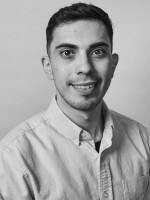Since 1967, about 1,500 writers from more than 150 countries have spent time in residence at the University of Iowa International Writing Program (IWP). A group of 18 established writers from around the world has just arrived in Iowa to take part in a fall residency.
Candace Chong is a playwright, screenwriter and translator from Hong Kong. Apart from writing drama, she has also collaborated in musical theater and opera as a writer and a librettist. The South China Morning Post named her one of Hong Kong's 25 most inspirational and influential women. She's a six-time winner of the Hong Kong Drama Award and has earned a number of international honors. Her plays have been performed on European and American stages.
Ben Kieffer spoke with Chong on River to River.
This transcript has been edited for length and clarity.
Kieffer: "Tell us more about your writing, Candace, the themes that you are drawn to?"
Chong: "I would describe my play. I'm very interested in exploring humanity. So I think my play explores romance, family politics and the press industry. I feel, sometimes, I feel like I work like a journalist because I enjoy doing a lot of research into films before I put my hand on paper. And so I really need to know as much as I can for the topics I'm writing about. And then I will work on it. So I always feel like my work reflects the reality in Hong Kong. Most of my inspiration came from Hong Kong. Hong Kong people, Hong Kong's changes. So yeah, this is the environment that shaped me and it also shaped my writing."
"Can you give us a specific example of your work, an issue that you've touched on with your work, your drama?"
"One of my works is a play called Wild Boar, and it is a play about the press industry in Hong Kong. It was written when I realized that Hong Kong's press industry had been going through some changes, but it is not obvious at that time. I just interviewed some reporters and their supervisors, and I realized that a lot of the press had been bought out by mainland Chinese businessmen, which will affect the principles of the press itself. I explored the topic, and then I tried to imagine if our city's press would be launched by, you know, one voice government. Will it change our press voices? And so I imagine what would happen, and it goes very badly. Then I write the play Wild Boar. Unfortunately, I think the things did happen after two years of the performance — a lot of the press has been botched."
"So the play that you wrote is very predictive of what actually happened. Let's talk more about the dramatic changes going on in your homeland, Hong Kong. This is the first paragraph of a recent New York Times article summarizing the changes in Hong Kong. Let me just quote it and have you react to it: 'Unions have folded, political parties shut down, independent media outlets and civil rights groups have disappeared. The Hong Kong government, its authority, backed fully by Beijing, is shutting down the city's civil society, once the most vibrant in Asia, one organization at a time.'
"Is that accurate? Is that what you see going on?"
"Yes, it’s accurate. Just by listening to that, it makes me want to cry. We just got through another amendment on our censorship, on a movie that is. It violates Beijing's government security interests, and it might not be able to put on screen. It directly hurts my work and also my feeling as a Hong Kong citizen who had enjoyed so much freedom of speech and writing in the past 40 years."
"To what degree are writers, not only playwrights like yourself, but other writers in Hong Kong censored, restricted in what they can write about?"
"The thing is, a lot of stage performances are funded by the government. So in this funding system, we are free to literally write whatever topic. But now they tend to put more censorship on what topics we are working on. Not to mention that some of our writers or creative actors and theater people were blacklisted. Once you're blacklisted, then the whole production would worry that they cannot put the [play] on the market or to Mainland China. So it really affected the creativity, our voice, whether we are brave enough to voice our feelings and put on our work, because now we know that we have to take the risk of not being able to put on stage or put on screen."
"A chilling effect. Can you foresee a time in Hong Kong when you will be forced to stop speaking out?"
"It's already happening. Not on me, but other people who are not working in the theater, but on the writing. And so my friends and my family have been worrying about me because some of my words touch on the political issues, too. I have made up my mind to finish some of the works in my hands, and I want to try to write without scheduling a time for full production, not take commission and just write in my own room. It may help me by ignoring the censorship thing and the risks in writing something true to my heart. Other than that, I cannot think of any other method that I can write without any fear."
"And to conclude, Candace, can you say how this time in Iowa, during this writing residency of the International Writing Program, the interaction with the other writers in the group that you're with will shape you, will influence your writing? Do you know how that will affect you?"
"Well, I came up with the idea of not taking a mission commission in the first month of my writing program here. And I have a lot of conversations and I listen to a lot of sharing from our writers, from different countries, which is also important because I see that they are also going through obstacles and difficulties in their own way. And that gives me strength to not seeing myself as the lonely, and only, writer who facing suppression. And so I think is important for me because it gives me strength to continue to write."
To find out more about these fascinating writers taking part in the 2021 International Writing Program at the University of Iowa, and about the events you can attend in person or virtually, you can visit the International Writing Program website.






